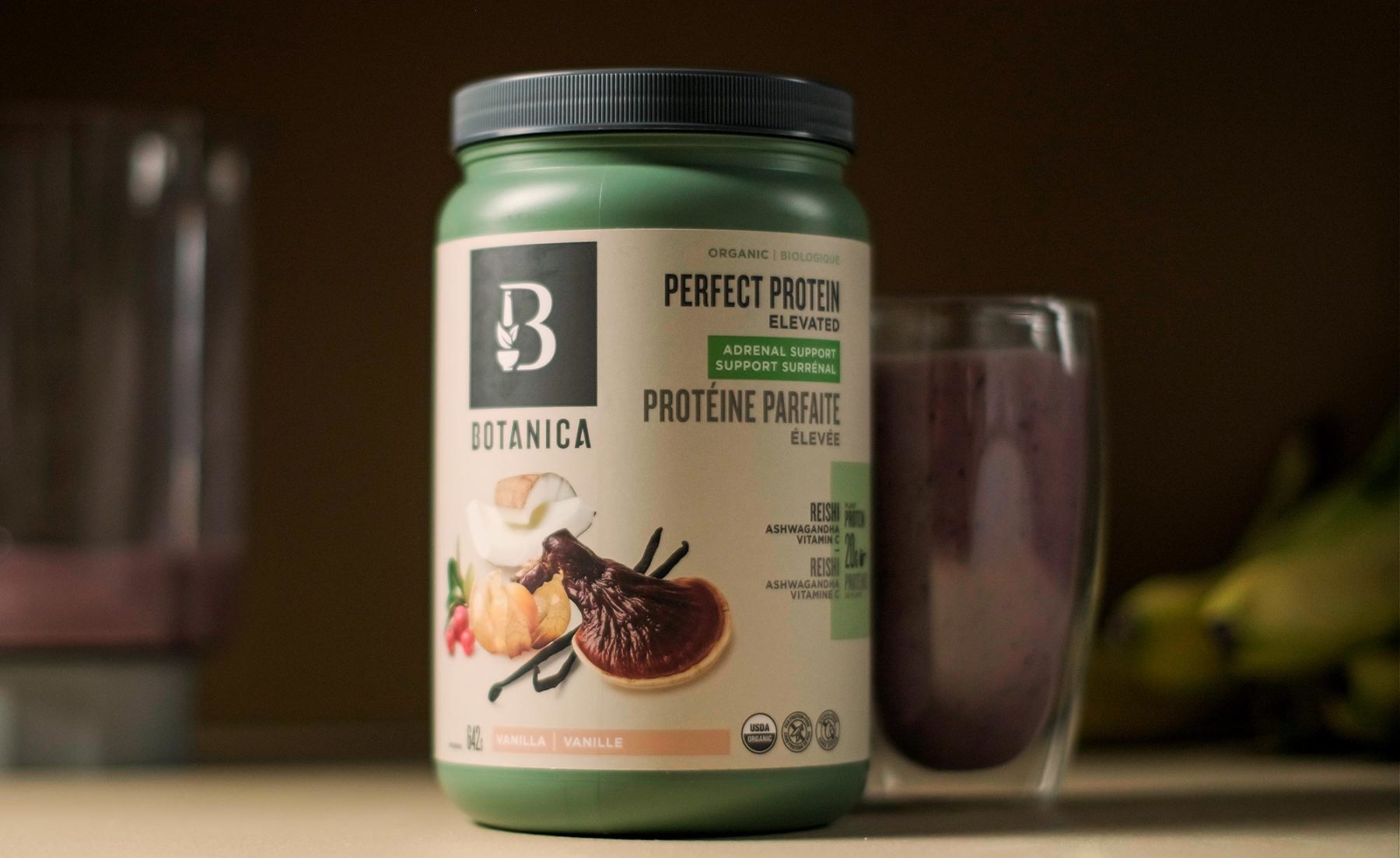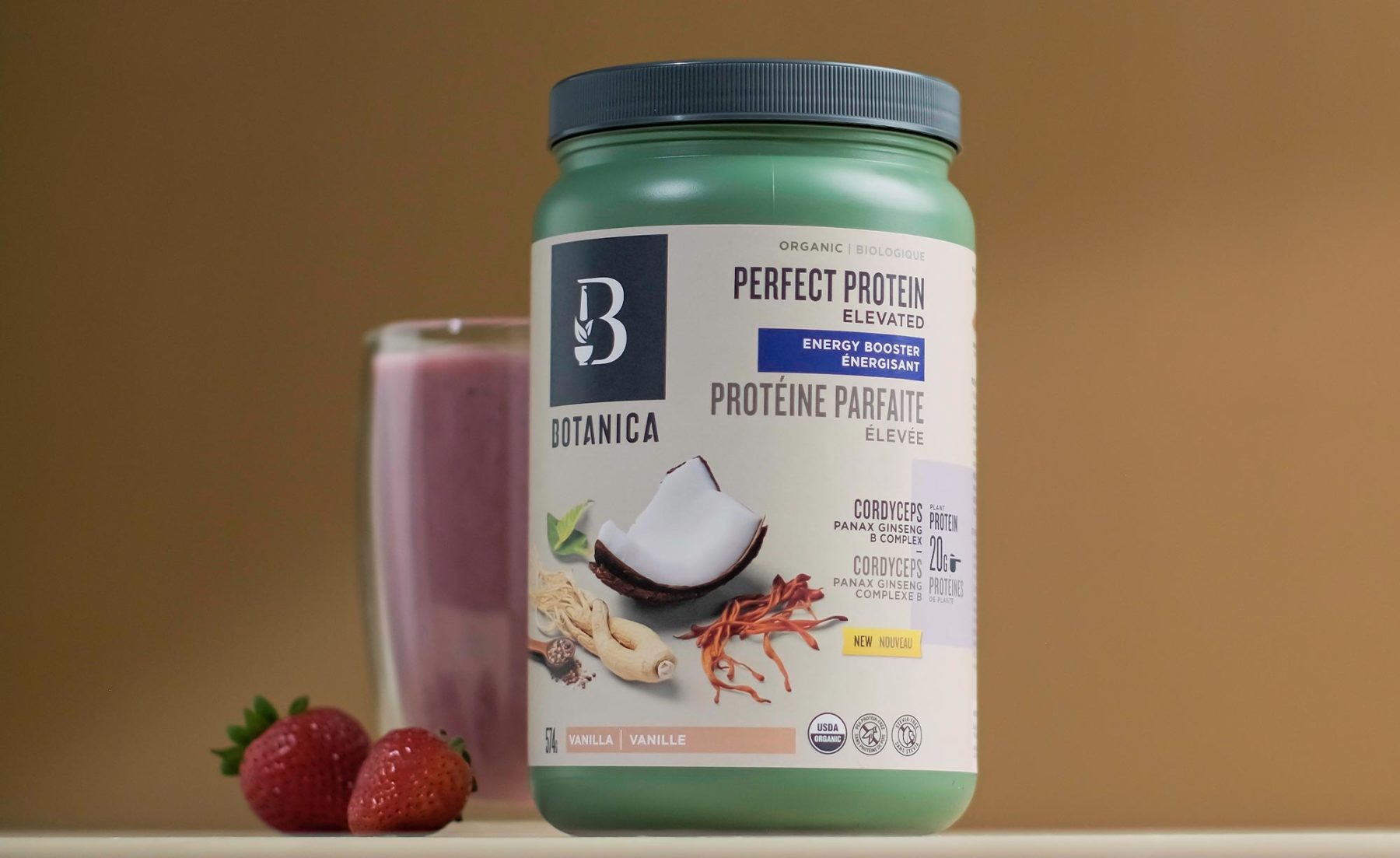When someone asks how you’re doing, is your first thought, “tired”? If so, you’re definitely not alone. Fatigue, tiredness and low energy in women are among the most common health complaints and as high as 35% of doctor visits are to address fatigue. [1] The trouble is, your doctor may not have as many resources as one would hope to tackle the underlying causes of fatigue and help you feel more like yourself again.
Low energy in women: why am I always tired?
Chronic stress is also at an all-time high and often, fatigue is the result of chronic stress. It’s usually not just one thing that is causing your fatigue, multiple stressors compound together and your tolerance for stress goes down. This can make life feel overwhelming!
It’s important to understand what your early signs of “this stress is too much” are. Like trouble sleeping, food cravings, or for me, I get really jumpy when I hear a sudden loud noise. That’s when I know I need to look at all of the stressors in my life and see how I can better support myself.
Other signs of chronic stress include; aches and pains, trouble sleeping, low energy, foggy brain, big-time cravings (or loss of appetite), and emotional withdrawal. [2]
The story of chronic stress has the hormone cortisol as its main character. Cortisol is a stress hormone and has many other jobs in the body. It modulates your blood pressure so your blood can pump faster under a threat. It manages your blood sugar, so your muscles have the energy to run. And it manages how your body uses food for energy. These are lifesaving! It’s amazing the mechanisms our body has to keep us alive.
But… we’re living a different kind of life than humans did for most of history. Stress isn’t a short-lived experience, it’s become chronic. And, we usually deal with more emotional stressors than physical stressors, which can leave us in a stressed-out state for days, weeks, or even months.
These are important things to know because when you’re under chronic stress your body starts to struggle with all of the cortisol-mediated body systems. [3] Your blood pressure and blood sugar can start to sit a little too high all of the time, leading to chronic inflammation.
Anxiety, depression, high blood pressure, brain fog, digestive issues, and weight gain (especially that stubborn belly fat) are also symptoms of high cortisol. [4]
Staying in defense mode
During a stressful day, your body is also spending your day on high alert, ready to deal with that stressor at every moment. Your body struggles to differentiate between physical stress and emotional stress; it assumes all stressors are physical threats. That work or family stress that’s weighing on your mind is leaving your body on high alert, looking for the bear that’s about to attack.
This leads to your body using up nutrients at a very fast rate. When your stress and cortisol are high, your body is only concerned with keeping you alive. It’s not paying attention to long-term survival, healing injuries, or even what happens tomorrow. It will use whatever nutrients are available to stay alive RIGHT. NOW.
After months or even years of this high stress/high cortisol state, it only makes sense that your body gets tired. Capital “T” tired. It was never meant to spend so long in this high alert state.
This is the loudest symptom of chronic stress, that down-to-the-bone kind of tiredness. Women are more likely to deal with these symptoms because their day-to-day burdens of life tend to be heavier. They’re more likely to do the emotional labour of the family, keeping everyone’s schedule and life in check, while also making sure the family has everything they need.
Low Energy vs. Adrenal Fatigue
Once your energy gets very low and your body starts to struggle with maintaining your blood pressure and blood sugar, in naturopathic medicine, this is called Adrenal Fatigue. The concept is that the adrenals, the makers of cortisol, eventually get tired and your cortisol level falls. It then becomes difficult to wake up in the morning and you can stay pretty tired all day long. It’s like you can’t shake out the morning cobwebs…and you can’t because it was cortisol that would normally wake you up.
In allopathic medicine, there’s a different understanding and explanation of what’s going on. It’s called HPA Axis Dysfunction, which is the idea that it’s not the adrenals that get tired, but the cells lose their sensitivity to cortisol. It’s a different way of explaining the same result: you don’t have access to as much cortisol each day, and that’s exhausting.
4 ways to address chronic stress & low energy in women:
1. Fuel up with tons of nutrients
Remember, your body is using up extra nutrients every single stressful day and that makes nutrient-dense foods like fruits, veggies, nuts, seeds, and beans extra healing for your body. This is also a good time for fresh-pressed juices to give your body tons of easy-to-access nutrients.
2. Keep your blood sugar steady
Your energy will drop even lower if your blood sugar crashes and that’s a stressor on its own, so a double whammy. Be sure to eat every 4 – 5 hours and include fibre, protein, and fat with each meal.
Sometimes, when life is busy, it can be hard to eat regularly. For those sorts of days, I always keep a container of my favourite Perfect Protein Elevated Adrenal Support on hand. It balances my blood sugar, gives me a tasty treat, and contains proper doses of adrenal supportive herbs and nutrients, like ashwagandha and whole food Vitamin C.
3. Make foods high in B vitamins and magnesium your best friends
Your body needs extra B vitamins and magnesium during stressful days and it’s easy to become deficient. Enjoy lots of dark leafy greens, beans, nuts, and whole grains for extra B vitamins. I love to get a hearty dose of magnesium through cocoa and cacao (the raw form of cocoa). It’s no wonder I crave dark chocolate during stressful days.
My #1 favourite recipe that’s full of B vitamins and magnesium is my black bean brownie recipe. I make it anytime I start craving chocolate, these brownies are fudgy and delicious!
4. Use adaptogenic herbs for support
Adaptogens are my go-to whenever life gets stressful. They help your body adapt to the day-to-day changes in the day, which helps relieve some of the weight of stress off your shoulders. That’s why I love Perfect Protein Elevated Adrenal Support, and also keep two other gems in my supplement cabinet.
Perfect Protein Elevated Energy Booster is what I grab when I need an energy boost, but I don’t want to use caffeine. It’s a combo of cordyceps medicinal mushroom, whole food B vitamins, and a generous kick of panax ginseng, in a base of Botanica’s unique Perfect Protein. This gives me the steady energy I need to get through a busy day, without draining my precious energy resources.
With chronic stress often comes poor sleep, which becomes a vicious cycle. If you’re in need of that extra support, consider Botanica’s Deep Sleep Liquid Capsules for sleep support. A gentle, non groggy herbal formula designed to support restorative sleep right through the night.
If you’re feeling exhausted and life is feeling overwhelmingly stressful, remember that your body is doing everything it can to support you each day. By adding a few supportive habits, those stressful days can become a wee bit more tolerable and your energy can start to recover. And, each relaxing moment you can build into your day can make your body very happy. A hearty laugh with a friend, a quiet cuddly moment with a loved one, or some time in nature are easy ways to pull yourself out of the stressed state and into a relaxing moment. Every single one is a win.
References
[1] Nicholson K, Stewart M, Thind A. Examining the symptom of fatigue in primary care: a comparative study using electronic medical records. J Innov Health Inform. 2015 Jan 21;22(1):235-43. doi: 10.14236/jhi.v22i1.91. PMID: 25924556.
https://informatics.bmj.com/content/22/1/235.long
[2] https://www.yalemedicine.org/conditions/stress-disorder#:~:text=%E2%80%A2A%20consistent%20sense%20of,%E2%80%A2Involves%20psychiatry%2C%20psychology
[3] https://www.mayoclinic.org/healthy-lifestyle/stress-management/in-depth/stress/art-20046037
[4] https://www.healthline.com/health/high-cortisol-symptoms






